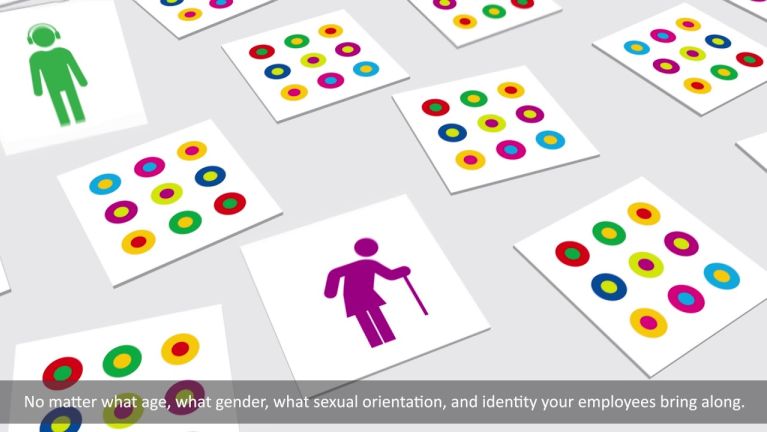“The capital of today’s economy”
Why is diversity decisive for a company’s success? Pioneering spirit Aletta von Hardenberg has some convincing arguments.

Aletta Countess von Hardenberg has been director of the Diversity Charter since 2011. It is the largest network of enterprises and institutions in the sphere of diversity. Before taking up this position she was a director at Deutsche Bank responsible for diversity management in Germany.

Ms von Hardenberg, pressure from demographic developments is increasing the importance of diversity in enterprises. Has this topic been born out of necessity?
No, the topic has been created by the insight that enterprises and institutions are better and more successful, when their organizational culture is rooted in diversity, when they review their internal processes and operate with diverse teams. This was the case long before we faced the current demographic challenges. But it’s true that these developments are strengthening the focus on diversity.
Germany today is more diverse than ever before.
Is it possible to monitor whether mixed teams find better solutions?
There are numerous studies that prove this. For instance, there’s our own study “Diversity in Deutschland”, which we published for our tenth anniversary together with the EY auditing company. But in the final instance we can say that Germany today is more diverse than ever before, irrespective of the dimensions in which we are thinking: ethnic origins, gender identity, religion and worldview, visible and invisible disabilities etc. If you want to serve this market, you need to think in terms of this diversity and embrace it in your overall outlook.
Dieses YouTube-Video kann in einem neuen Tab abgespielt werden
YouTube öffnenThird party content
We use YouTube to embed content that may collect data about your activity. Please review the details and accept the service to see this content.
Open consent formCan you give us an example from Germany’s business world?
One example that springs to mind is the selection process for job applicants. Many organizations have modified these processes and abandoned stereotypes. Deutsche Telekom, for instance, has introduced a talent-oriented selection process for trainees: average grades are no longer the decisive factor. Depending on the particular training or study programme, the emphasis now is on relevant talents, strengths and interests. Young people, whose prospects are very limited by learning impairments or a lack of qualifications, can demonstrate their talents in a practical qualification procedure. Those who are successful can then start directly as trainees at Deutsche Telekom.
You have been committed to creating diversity with the Diversity Charta since 2006. How many signatories have you managed to gain since then?
Since then more than 3,100 companies and institutions have signed the Diversity Charta, and new inquiries are constantly coming in. We are the largest network for diversity, and it’s a lively platform for topics surrounding diversity. What we see in diversity is not only the capital of today’s economy, but also a key to cohesion within society.
Dieses YouTube-Video kann in einem neuen Tab abgespielt werden
YouTube öffnenThird party content
We use YouTube to embed content that may collect data about your activity. Please review the details and accept the service to see this content.
Open consent formInterview: Martin Orth
You would like to receive regular information about Germany? Subscribe here:



